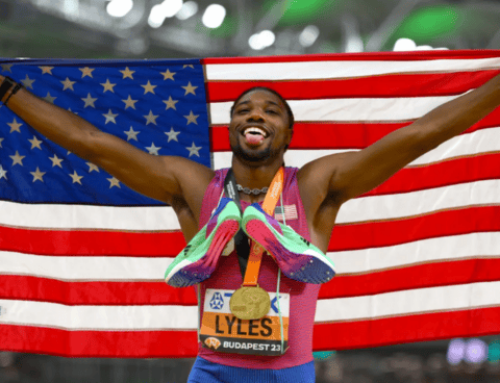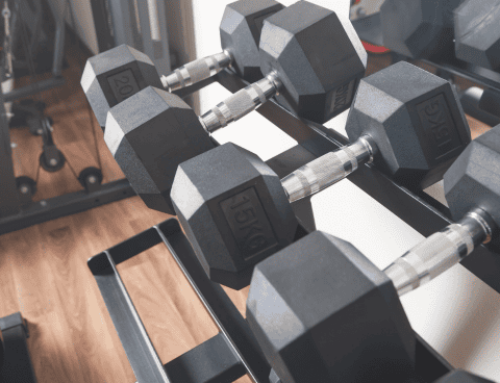Why Athletes Must Focus on Developing Their Own Identity
![]()
To some, it’s a mystery. Why would an athlete making millions of dollars commit a crime? Why does an athlete on a full scholarship get kicked off the team for bad behavior? And how can we fix this?
According to a 1993 study in the International Journal of Sport Psychology, it all comes down to athletic identity, or “the degree to which an individual identifies with the athlete role and looks to others for acknowledgement of that role.” Often, athletes focus so intently on their development as an athlete that they forget about personal development.
Parents, the media, educators and sports professionals all play unique roles in defining who an athlete thinks he or she is. An athlete’s often-hidden vulnerabilities, the paradox of the invincible and the invisible, are linked to the concept of athletic identity. Sometimes, the external voices change who the athlete believes he or she is, or is supposed to be, masking flaws that may become visible in times of weakness or stress.
An athlete’s status in sports or on a team can change at any time, which can instantly affect the athlete’s identity. Also, the longer an individual participates in a sport, the more he or she will identify with the role of athlete. While they are in the athlete role, athletes need to maximize opportunities for personal, social and professional development.
Currently, no uniform basic curriculum, program or approach helps one systematically build an athletic identity. The area of athlete behavior and personal growth for athletes has lagged behind other priorities such as facility development and sponsorship. Investing in athletic identity of the professional and student-athlete is in many cases a low priority, mainly due to the difficulty in actually measuring how and when growth occurs. But as we begin to realize how failure to encourage personal growth continues to cause problems in the athletic community, the tide may finally be turning.
We are embarking on an era of zero tolerance for unwelcome behavior, but sporting organizations are not focusing on helping athletes who have problems. Instead, they are simply removing these athletes from their teams and leagues. This is not the answer. The answer is to develop and implement personal development programming specifically designed to help athletes reach a full understanding of their athletic identity.
To help your athletes develop into well-rounded individuals, I recommend following these five recommendations.
Advice for coaches, parents and administrators
- Do some research on the personal development of athletes so you can understand the needs of your players or children.
- Review the types of personal player development programs currently being offered by athletic departments or youth programs.
- If your team or athletic department lacks personal player development programing, find a qualified person to work with your athletes and make sure they have a year-long program that has a transition component.
- Understand that the personal development needs of athlete are not limited by sport, race, socioeconomic status to gender. Personal development is something that athletes from all levels and sectors must deal with during their athletic journeys.
- Finally, if you have any questions, please contact me directly at [email protected]
Reference:
Brewer, W., Van Raalte, 1. L., & Linder, D. E. (1993). “Athletic identity: Hercules’ muscles or Achilles’ heel?” International Journal of Sport Psychology, 24(2),237-254.
[cf]skyword_tracking_tag[/cf]RECOMMENDED FOR YOU
MOST POPULAR
Why Athletes Must Focus on Developing Their Own Identity
![]()
To some, it’s a mystery. Why would an athlete making millions of dollars commit a crime? Why does an athlete on a full scholarship get kicked off the team for bad behavior? And how can we fix this?
According to a 1993 study in the International Journal of Sport Psychology, it all comes down to athletic identity, or “the degree to which an individual identifies with the athlete role and looks to others for acknowledgement of that role.” Often, athletes focus so intently on their development as an athlete that they forget about personal development.
Parents, the media, educators and sports professionals all play unique roles in defining who an athlete thinks he or she is. An athlete’s often-hidden vulnerabilities, the paradox of the invincible and the invisible, are linked to the concept of athletic identity. Sometimes, the external voices change who the athlete believes he or she is, or is supposed to be, masking flaws that may become visible in times of weakness or stress.
An athlete’s status in sports or on a team can change at any time, which can instantly affect the athlete’s identity. Also, the longer an individual participates in a sport, the more he or she will identify with the role of athlete. While they are in the athlete role, athletes need to maximize opportunities for personal, social and professional development.
Currently, no uniform basic curriculum, program or approach helps one systematically build an athletic identity. The area of athlete behavior and personal growth for athletes has lagged behind other priorities such as facility development and sponsorship. Investing in athletic identity of the professional and student-athlete is in many cases a low priority, mainly due to the difficulty in actually measuring how and when growth occurs. But as we begin to realize how failure to encourage personal growth continues to cause problems in the athletic community, the tide may finally be turning.
We are embarking on an era of zero tolerance for unwelcome behavior, but sporting organizations are not focusing on helping athletes who have problems. Instead, they are simply removing these athletes from their teams and leagues. This is not the answer. The answer is to develop and implement personal development programming specifically designed to help athletes reach a full understanding of their athletic identity.
To help your athletes develop into well-rounded individuals, I recommend following these five recommendations.
Advice for coaches, parents and administrators
- Do some research on the personal development of athletes so you can understand the needs of your players or children.
- Review the types of personal player development programs currently being offered by athletic departments or youth programs.
- If your team or athletic department lacks personal player development programing, find a qualified person to work with your athletes and make sure they have a year-long program that has a transition component.
- Understand that the personal development needs of athlete are not limited by sport, race, socioeconomic status to gender. Personal development is something that athletes from all levels and sectors must deal with during their athletic journeys.
- Finally, if you have any questions, please contact me directly at [email protected]
Reference:
Brewer, W., Van Raalte, 1. L., & Linder, D. E. (1993). “Athletic identity: Hercules’ muscles or Achilles’ heel?” International Journal of Sport Psychology, 24(2),237-254.
[cf]skyword_tracking_tag[/cf]










